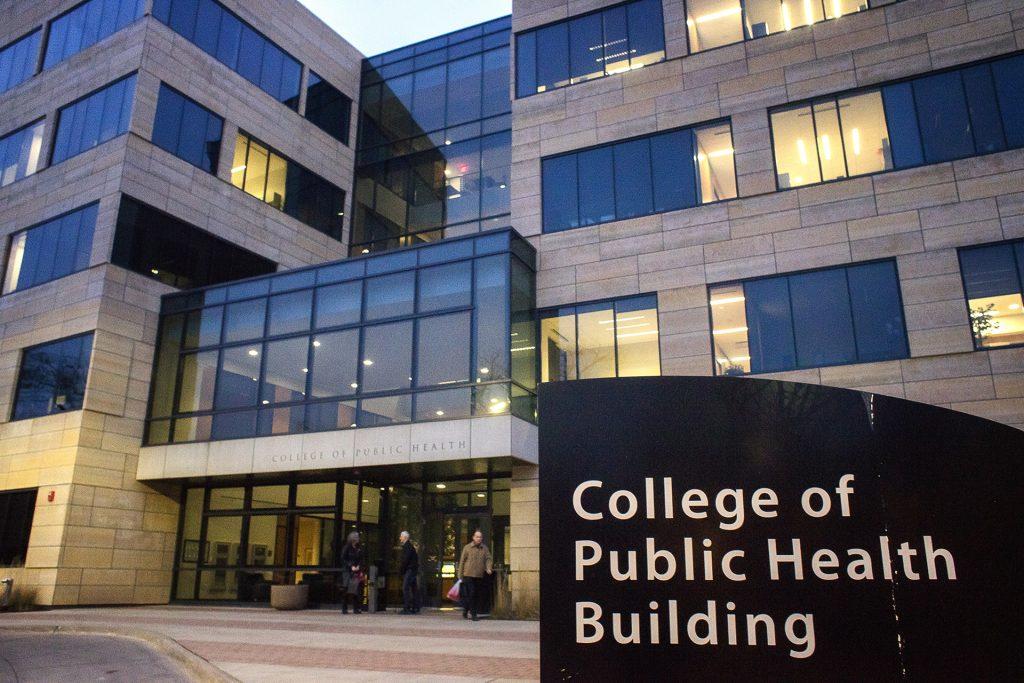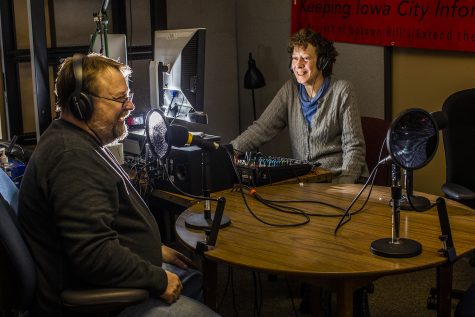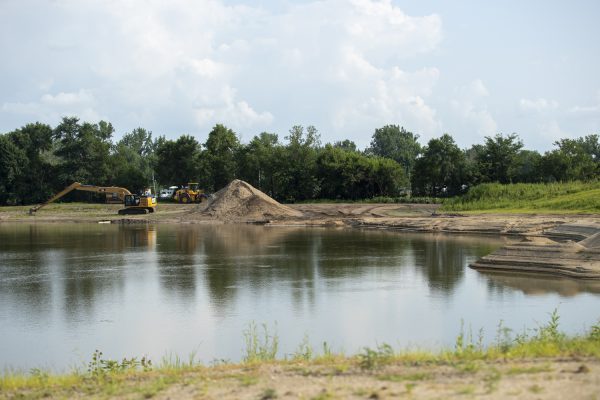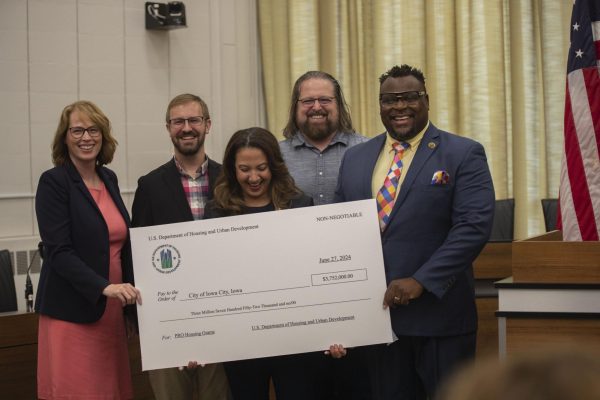UI professor helps find link between climate change, heart disease
UI Professor Paul Romitti is part of a research group across 10 states that has found a link between congenital heart defects and climate change. Midwestern states are particularly at risk because of the frequency of heat waves.
The College of Public Health Building is seen on Thursday, Dec. 14, 2017.
February 20, 2019
A team of researchers across 10 states, including Iowa, have conducted a study that links congenital heart defects to climate change.
These particular findings come from a larger “National Birth Defects Prevention Study” that UI Professor Paul Romitti and his colleagues are a part of. Romitti said the 15-year study looks at genetic and environmental risk factors for birth defects.
Romitti and his colleagues conducted the research in relation to climate change and heat waves, he said. The study shows that Midwestern states are significantly at risk for extreme heat exposures and heat waves, which means there could be a higher risk for heart defects.
RELATED: UI graduate develops new heart disease prevention technology
“We took this data from this 10-state study, and we looked at a 10-year-time period, and then we extended, by using projected births in the decade 2025 to 2035, to see what the burden would be of congenital heart defects from these extreme heat exposures,” he said.
UI Professor Thomas Scholz said congenital heart defects are heart diseases children are born with. This is the most common birth defect, he said, and 1 in every 100 children are born with one.
If we know this information, it can be useful for policymakers and preparing and allocating resources for adapting to climate change.
— UI Professor Paul Romitti
Scholz said that though this observation is significant, the study focuses more on the epidemiology and doesn’t apply to individuals and his general work in UIHC.
The initial connection between climate change and heart defects came from animal and smaller human studies in relation to adverse birth outcomes among pregnant females in extreme heat exposure, Romitti said. These early studies found that climate change was linked to congenital heart defects.
“Heat exposure in these extreme heat events, as we’ve defined in the paper, really might be sensitive indicators to predict congenital heart defects … associated with both the occurrence and increased occurrence and severity of these heat events,” Romitti said.
Romitti, the only researcher from Iowa in the 10-state study, said being a part of a large study such as this represents contemporary medicine. He said working with researchers across the country allowed a larger collection of data to guide the study.
“This is just an example of where science has been heading for the last several years,” he said. “And it’s these big studies, these large data projects, where we can have thousands of subjects to explore these research questions in greater detail then perhaps one state along or one group alone could do.”
The inclusion of 10 states allowed for an overall study to be conducted to link climate change to heart defects. Specifically, data revealed the Midwest as particularly vulnerable because of heat waves.
Associate Professor of epidemiology Kelli Ryckman said this kind of research, taking place in the Public Health College, is important for communities to understand health risks.
“In the College of Public Health, a lot of our research focuses on population health, and that’s very important … for us to learn things about diseases or risk factors for different things but also for the community to have people understand what their risks are for given conditions,” she said.
Romitti said that communicating these results is key to changes in policy regarding climate change. He also said it was particularly important for him to communicate these results to Iowans because of the particular risks of heat waves living in the U.S.
“If we know this information it can be useful for policymakers and preparing and allocating resources for adapting to climate change,” he said.





















